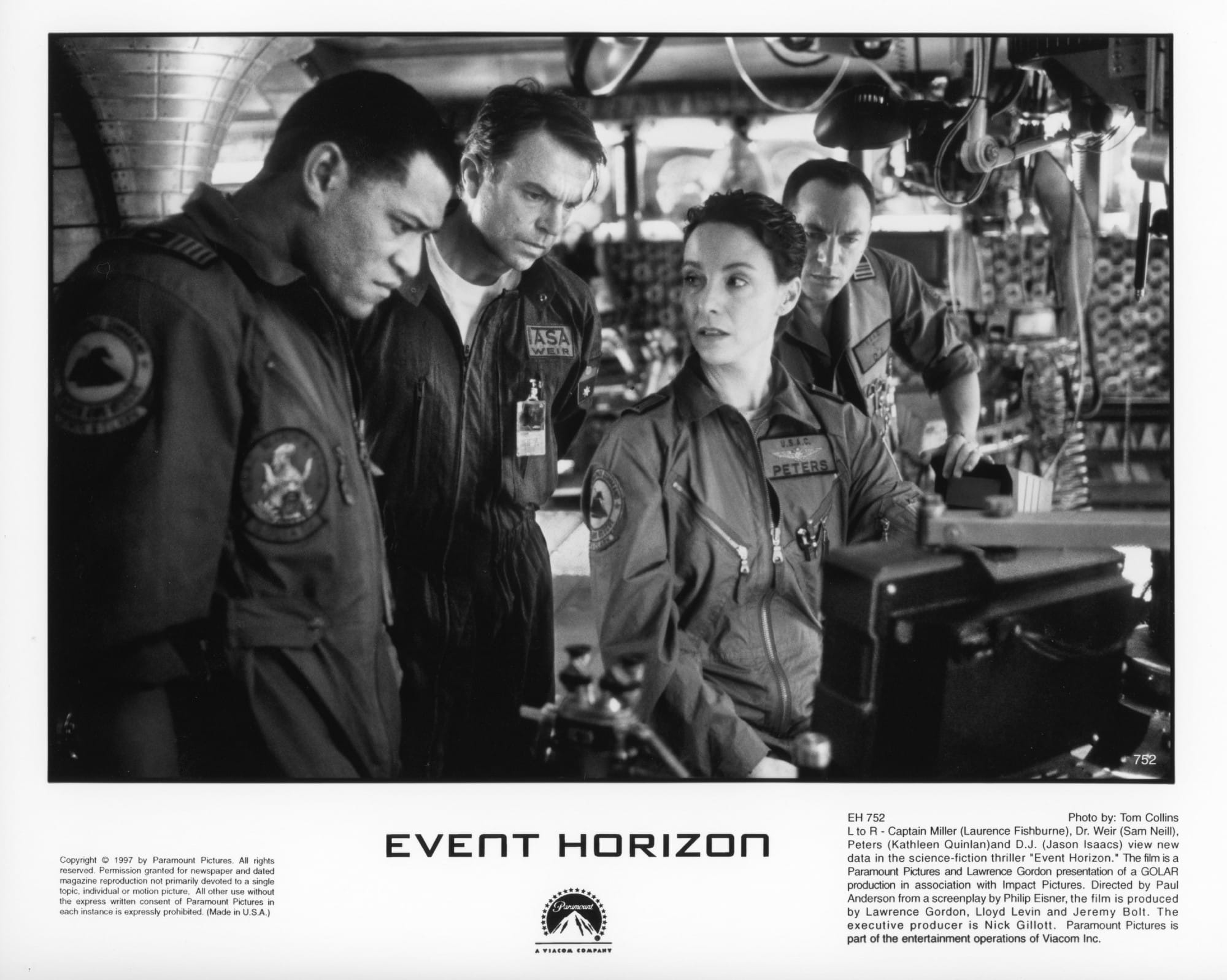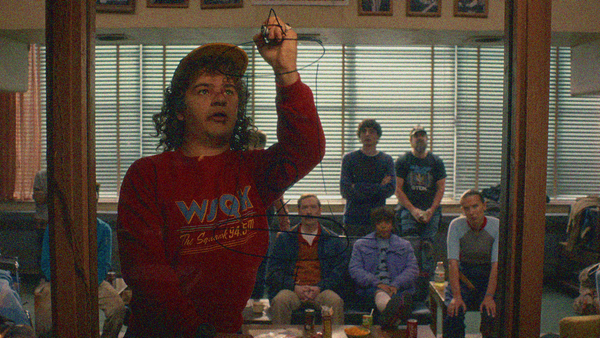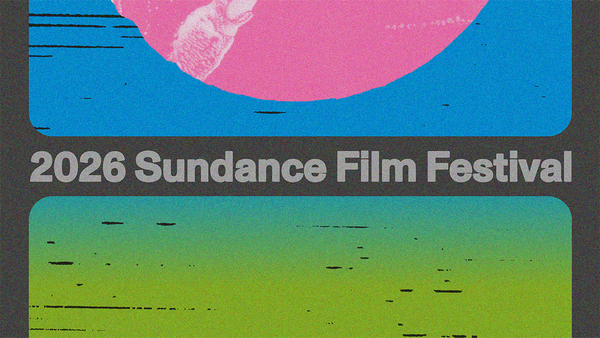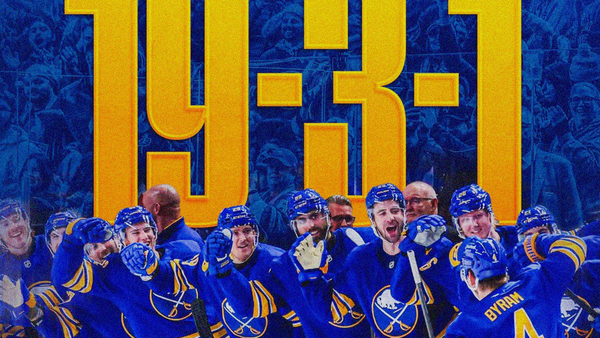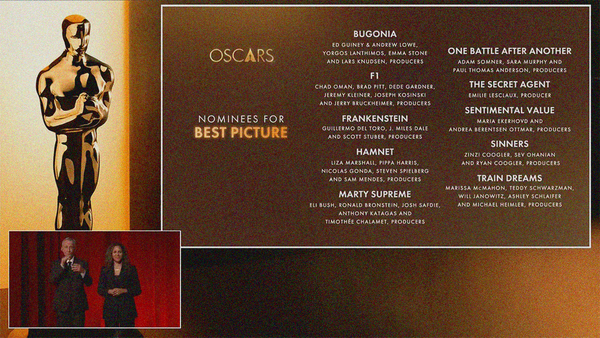Week Ending 8/15/25
GKIDS are streaming
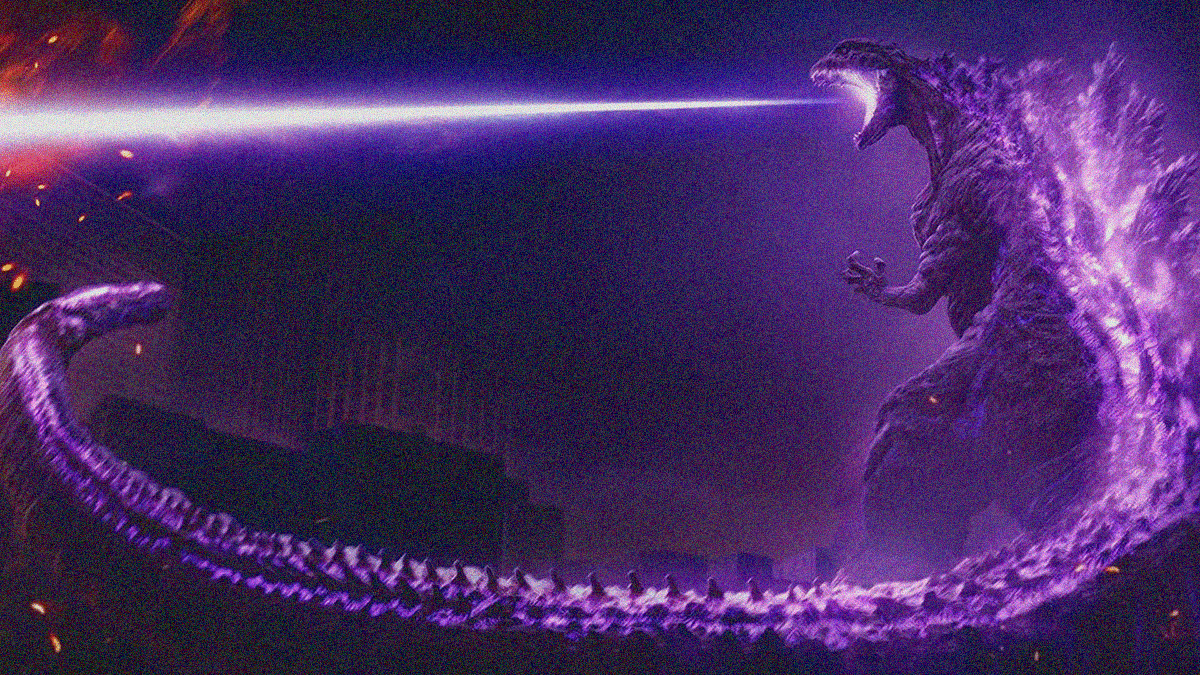
Fresh off its sale to Toho International, American distributor GKIDS is expanding its Japanese streaming offerings on HBO Max. Joining the already present Studio Ghibli catalog (each in separate English and Japanese language versions—a huge deal considering the copies I bought on iTunes bury the latter as a "special feature") are twenty more titles ... eventually including the just released in theaters 4K transfer of Shin Godzilla.
I'm excited for works by Makoto Shinkai, Mamoru Hosoda, and Satoshi Kon and this will hopefully become an A24 situation where new releases regularly drop on HBO Max a month or two after release. It would be great to know there's an easy access point for GKIDS rather than needing to scour the internet for where (if at all) the next film might land.
Just know that GKIDS isn't the exclusive distributor of all those artists' work despite them owning the rights to so many. For example, Hosoda's latest Scarlet (playing Venice and TIFF) is a Sony property. So, it will probably end up on Netflix or Crunchyroll once the time for streaming arrives similar to Shinkai's Suzume. Although, Your Name. was originally distributed by FUNimation (now owned by Sony's Crunchyroll) and it is inexplicably included here instead of there ... so, who really knows?
As of now, September 1st delivers the initial drop of eight films with the other twelve landing later this year and into 2026.
September 1st, 2025:
• Children Who Chase Lost Voices (dir. Makoto Shinkai)
• Fireworks (dir. Akiyuki Shinbo, Noboyuki Takeuchi)
• Fortune Favors Lady Nikuko (dir. Ayumu Watanabe) (North American Streaming Debut)
• Ghost Cat Anzu (dir. Yôko Kuno, Nobuhiro Yamashita) (North American Streaming Debut)
• Lonely Castle in the Mirror (dir. Keiichi Hara) (North American Streaming Debut)
• Love & Pop (dir. Hideaki Anno) (North American Streaming Debut)
• The Place Promised in Our Early Days (dir. Makoto Shinkai)
• Your Name. (dir. Makoto Shinkai) (4K Streaming Debut)
Dates TBD:
• Angel’s Egg (dir. Mamoru Oshii) (North American Streaming Debut, 4K Streaming Debut)
• Liz and the Blue Bird (dir. Naoko Yamada)
• Lu Over the Wall (dir. Masaaki Yuasa)
• Millennium Actress (dir. Satoshi Kon)
• Mind Game (dir. Masaaki Yuasa)
• Perfect Blue (dir. Satoshi Kon) (4K Streaming Debut)
• Shin Godzilla (dir. Hideaki Anno, co-director Shinji Higuchi) (4K Streaming Debut)
• Summer Wars (dir. Mamoru Hosoda) (4K Streaming Debut)
• The Boy and the Beast (dir. Mamoru Hosoda) (4K Streaming Debut)
• The Colors Within (dir. Naoko Yamada) (North American Streaming Debut)
• The Girl Who Leapt Through Time (dir. Mamoru Hosoda) (4K Streaming Debut)
• Wolf Children (dir. Mamoru Hosoda) (4K Streaming Debut)

East of Wall
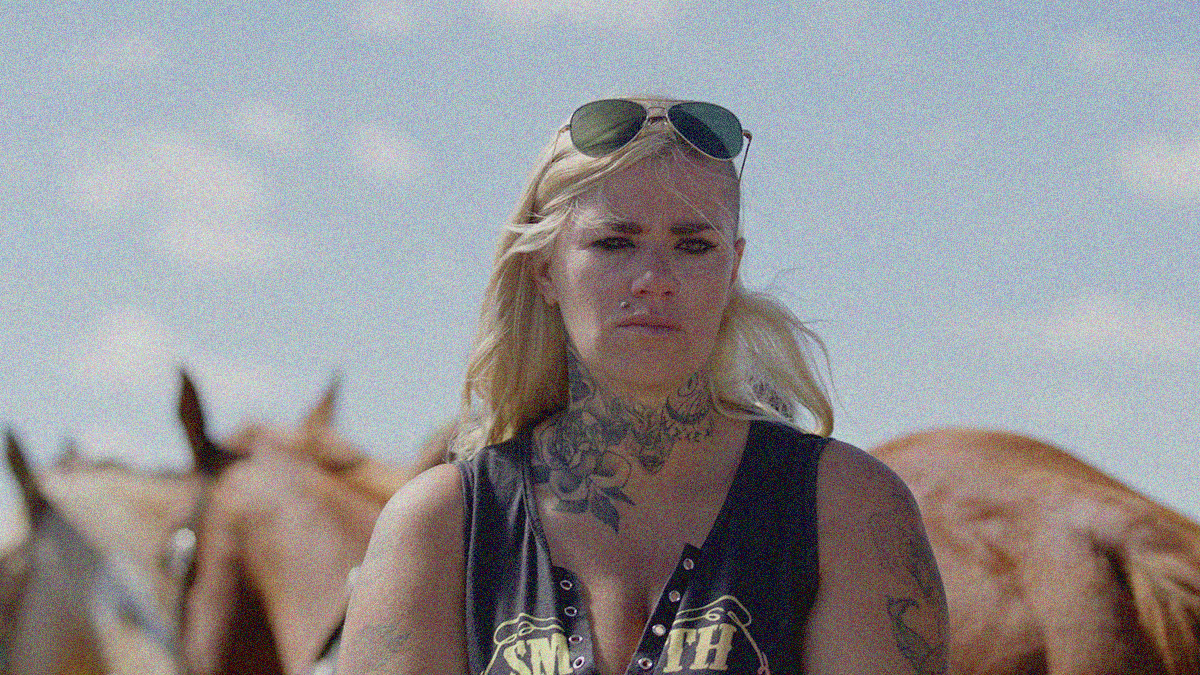
The title has less to do with the film than its inspiration. East of Wall was the direction given to Kate Beecroft by another South Dakotan that moved the writer/director with stories of an often-ignored swath of America. Following those instructions would ultimately find Tabatha Zimiga and her three-thousand-acre horse ranch populated by young, fierce girls helping their matriarch (some by blood, others by spirit) break, train, ride, and sell the animals at auctions, rodeos, and even on TikTok. Beecroft spent three years embedded amongst them, listening, learning, and writing.
Who better to tell their story than the women themselves? Besides Jennifer Ehle as Tabatha's mother Tracey and Scoot McNairy as Roy, the wealthy outsider offering them their dreams for the price of their freedom, everyone on-screen is a non-actor more or less playing a variation of their own lives. It's a motley crew of children left behind by dead parents, incarcerated parents, and some parents who simply cannot afford (financially or emotionally) to be parents. And Tabatha takes them all in. She gives them purpose, structure, and love. They don't work on the ranch for money. They do it for her.
The film opens on the one-year anniversary of Tabatha's husband John's death. The void his absence left remains with no signs of disappearing. She tries to keep things together and create a sense of normalcy, but how is that possible if she isn't acting normal herself? Tabatha hasn't gotten on a horse since his death. It might seem like a small thing, but everyone around her knows the pain that choice conjures in her. They feel it too—especially her eldest Porshia (Porshia Zimiga). She is now the de facto face of the ranch, winning rodeos and showcasing the horses at auction. She's the one who catches Roy's eye.
Because despite all the money and amenities, he's too old school to maximize profits the way he knows Tabatha and Porshia could if given his resources and backing in this male-centric world. So, he offers to buy their land—property John left to his and Tabatha's three-year-old son Stetson. They will still be able to live and work there, but they'd do it under his stewardship. It's a no-brainer on paper considering they've had to sell too many horses well below their worth just to afford groceries for all the teens living with Tabatha and her new boyfriend Clay (Clay Pateneaude). But it's not long before their abundant joy vanishes.
The narrative through line therefore hinges on this decision. Tabatha agrees to try the arrangement and see if it works for her. Roy presumes the money he's correct in promising from the partnership will be all the proof he needs, but we know this isn't a business for them. It's their life. Their soul. As such, the journey towards deciding inevitably pushes them to the ends of their patience. Porshia discovering that her work now actually feels like work. Clay watching the fun born from loyalty to Tabatha washing away as Roy lets hubristic entitlement demand an unearned respect. Tabatha finally coming to terms with what the land means, what John meant, and who she is because of it.
East of Wall conjures the same authentic energy as Chloe Zhao's breakthrough film The Rider. Yes, the acting is rough around the edges, but their naturalism summons a wealth of emotion that more than makes up for any lack of craft. McNairy helps a bit with that aspect courtesy of his character's own tragic background, but Roy remains an interloper on that front too since he seeks to buy and own people just as much as he does land. Ehle is the real catalyst for the cast to dig deep and speak from their heart since Tracey is a woman who regrets her past, owns her faults, and embodies the vulnerability necessary to provide a safe space for the others to embrace theirs too.
The film is best when the script is its quietest. There's a sequence where women from the area come to celebrate Tracey's birthday by sharing tales of surviving abuse and living with the abuse they themselves doled out. The way Beecroft propels those emotions into augmenting a fictional reveal is impressive because we've been waiting a long time to finally discover what happened to John. By letting them prime us, those details hit harder than if they were dropped in somewhere else. And maybe his fate is real too. It's surely not uncommon. Regardless of whether this specific John existed, many other "Johns" have.
That ambiguity is a great barometer of success for semi-autobiographical fictionalized cinema. An inability to differentiate between what's real, inspired by reality, or a complete fabrication is a badge of honor. Give credit to Tabatha too because she's the loom weaving truth and artifice together into a single bolt of cloth. We feel everything she's feeling and invest in her journey to rediscover her identity so she can remember what it is these kids need from her. Because, as we learn from Roy, the stability wealth provides is often illusory. Familial love (biological or found) might not always be enough, but it is generally real.
8/10
The Glassworker
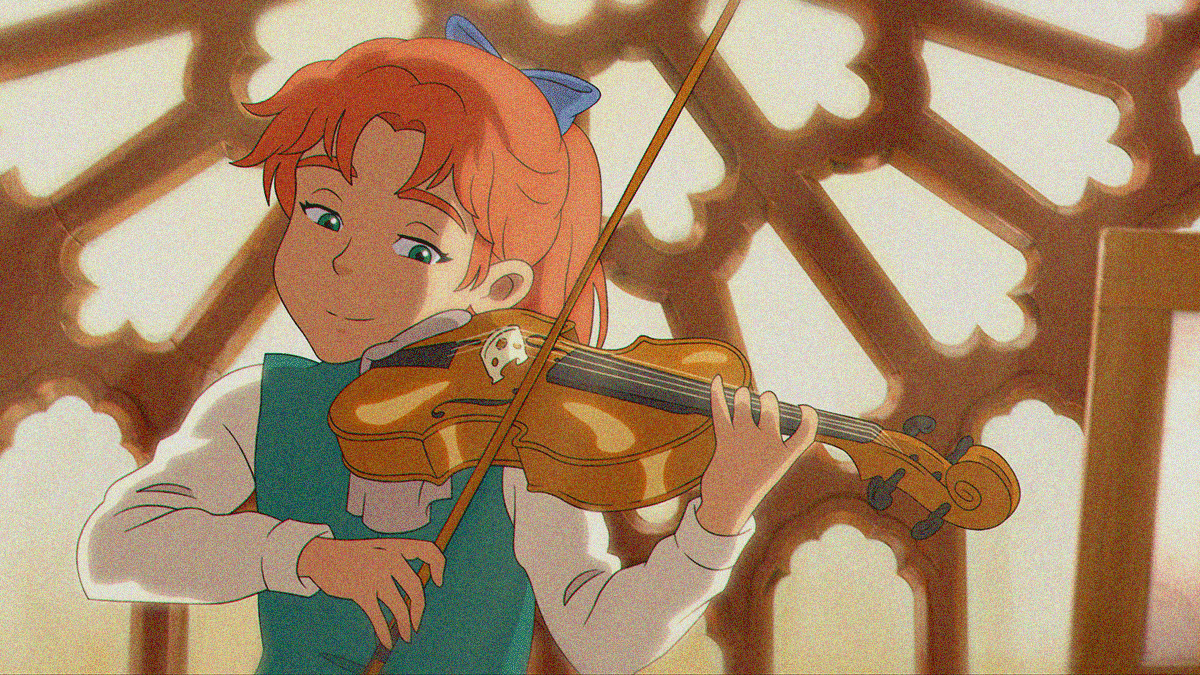
Usman Riaz has been working on The Glassworker for a decade-long quest to put his Mano Animation Studios and Pakistan itself on the map for hand-drawn animation. You'll see his name all over the credits from director to co-composer to storyboard artist and it's easy to appreciate his passion, and that of everyone involved, considering the final product delivered on-screen. It's a first-love story between two kindred spirits from different worlds. A love letter to the arts as the one true embodiment of what it means to be human. And a tale of war's unyieldingly destructive might.
Set within a land fighting its neighbor for control over a ravine housing precious minerals, young Vincent Oliver (Teresa Gallagher as a boy and Sacha Dhawan as an adult) wanted for nothing as he hung onto every word of his father's (Art Malik's Tomas) stories while learning the family tradecraft of glassblowing. But then the army arrived under the leadership of Colonel Amano (Tony Jayawardena)—a man with adoration for artistic beauty, but first and foremost a devotee to the totalitarian control of the resources (including people) proving necessary to his cause. Suddenly everything changes.
The Olivers become pariahs as Tomas' vocal pacifism labels them cowards by the jingoistic townsfolk applauding their own kids for joining the cause as soldiers-in-waiting. The only person who refuses to join them is ironically the Colonel's own daughter Alliz (Anjli Mohindra). She's an artist herself—driven to be the best violinist in the nation thanks to her father's love of the craft. Vincent and Alliz become fast friends even if their parents don't see eye to eye, but the pressure of rising tensions and community fears ensure the dynamic's foundation remains fragile at best. One pang of jealousy risks ruining everything.
As such, there's a lot of heavy subject matter throughout. This isn't just a Romeo and Juliet homage with love bridging a social divide. No, this is about the perils of war, the necessity to compromise one's values for survival, and the reality that love is often not enough. It's about not dismissing someone sight unseen because of their family or what neighbors say. It's about pursuing your passion with every fiber of your being even as the world crumbles around you. It's about lost time due to petty grievances and misguided assumptions. And the regret of never being able to say what's in your heart and accepting that its pain doesn't render those feelings any less true.
The animation is gorgeous with smooth movements and wonderful lighting—especially with all the glassworks. There are some fantasy elements by way of a top secret warship energy source Amano enlists Tomas into helping facilitate despite his moral compunction and a could-be-friendly/could-be-evil djinn hiding in a cave below the Oliver's studio (the latter of which lends some cultural specificity to the proceedings beyond obvious allusions to Pakistani and Indian conflict while also teasing an impossible epilogue). And the music is memorably resonant—especially a climactic recital solo that's crucial to everything that follows.
Told via flashback courtesy of Vincent reading a letter from his past, Moya O'Shea's script expertly escalates the drama and emotions as life's uncertainty leads these characters towards an extremely dark moment of unbridled chaos and tragedy. It really comes out of nowhere because we invest so heavily in the romance between Vincent and Alliz that we forget how tumultuous everything else is around them. We watch them desperately try to overcome that which they didn't ask for only to end up self-sabotaging what they do want and yet it can all disappear in an instant as bombs drop from the sky.
And that's the point. Both of the narrative and this film being willed into existence. Art lives on and the love that went into making it does too. Vincent was driven to make his father proud, but his real motivation was creating a glass piece worthy of Alliz. She was driven to play music to grant her father a reprieve from battle, but her pivot into composition was to prove to Vincent that she was capable of creating something worthy of him too. Whatever might happen to them in the end doesn't erase what they made. The art itself is released into the world to heal old wounds and inspire new genius. Art is immortal.
8/10
Keep Quiet
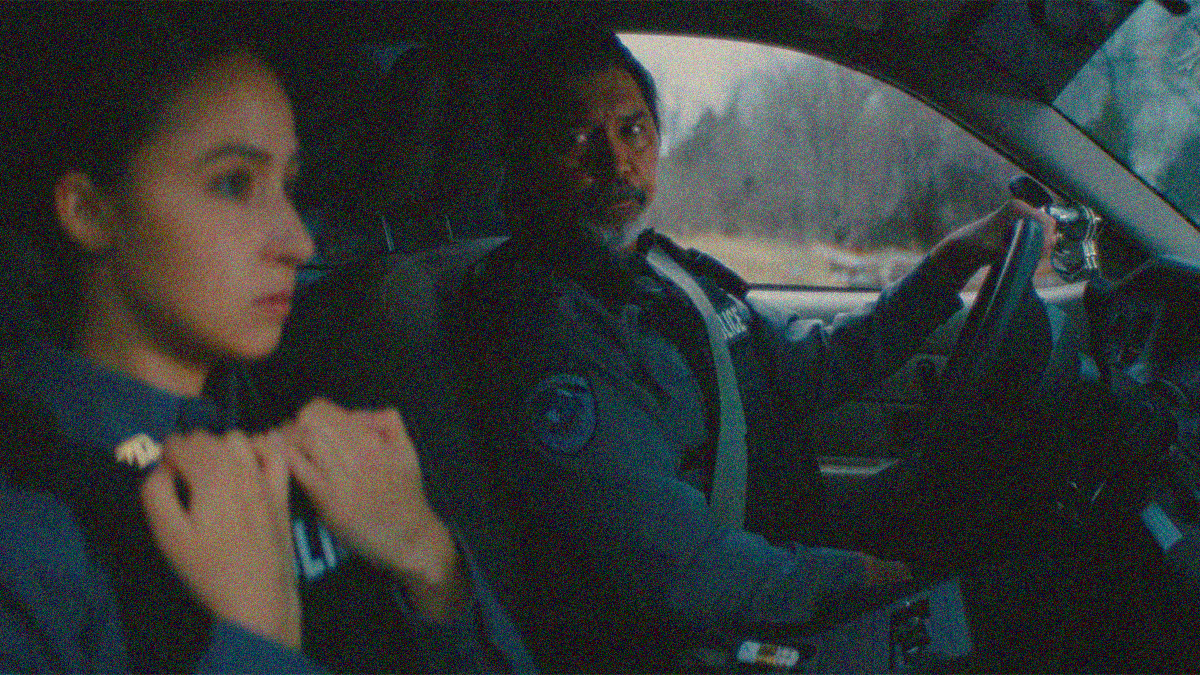
Teddy (Lou Diamond Phillips) admits that whatever new demons might have been born as a direct result of his actions are just that: new. The indigenous people of Thunderstone have battled one form of corruptive evil or another their whole lives whether it be colonialism, racism, substance abuse, or gang culture. So, while the catalyzing event for this latest violence is unspeakably horrific, the pain isn't. That's why Teddy sought to give back to the community in the first place. And it's why he now carries the burden of what happened upon his own shoulders despite none of it truly being his fault.
A non-Native who grew up in the area, Teddy understands his role as tribal police. Yes, he's meant to uphold the law, but he's keenly aware of the nuances inherent to that duty. So, despite his new partner (Dana Namerode's Sandra) engaging in a cut-and-dry arrest scenario at his side, Teddy simply confiscates their suspects' weapons and lets them go. It's a teaching moment about "favors and leverage." It's about knowing the players, acknowledging the crimes, and understanding the bigger picture. Putting them in jail won't stop them from doing it again, but it would prevent a few kids from having a babysitter tomorrow.
Written by a Canadian tribal policeman from his own experiences on the job, Zach Montague imbues the script for Keep Quiet with an undeniable authenticity while director Vincent Grashaw helps balance its need for intensity and penchant for empathy—a skill he's adeptly evolved ever since his feature debut Coldwater. Think Training Day but with a rogue commanding officer who acts in the community's interests rather than his own. He doesn't look the other way to line his pockets as a king. He does it knowing this complex ecosystem exists in the gray. There's too much sorrow to erase crime. So, you mitigate instead.
Easier said than done on a good day, Thunderstone's current drama falls on one of its worse. Richie Blacklance (Elisha Pratt) has just been released from prison days after his youngest nephew committed suicide. If he wasn't already seeking revenge for the death of the boy's mother five years prior, he certainly is now. More than that, however, he's also bringing the boy's brother (Lane Factor's Albert) under wing to do so. That leads a trail of bodies straight to his mother's (Irene Bedard's Chelsea) door. Straight into Teddy's backyard. And Deputy Humphrey (Nick Stahl) is itching to ignore county jurisdiction to get in on the action.
It's not just a snowball effect from a yet unrevealed tragedy. It's an avalanche. Teddy knew it was coming eventually. It's why he hired Sandra in the first place despite her own checkered jacket. He saw a good heart when everyone else saw a liability. He hoped she'd understand what it was he was doing in the community and not simply dismiss him as going soft like Humphrey and the others in the county station. Because Teddy didn't just need someone to watch his back. He was desperate for someone to watch the residents' backs too. From the law. From themselves. From the past.
Montague is not only portraying the cycle of violence within gang culture, but also the cycle of oppression that leads to it. He draws Teddy as a haunted soul with an infamous past who found a way out. A man who put everything he had into helping give young boys an alternative he didn't have growing up himself. And it worked. That's why it hurts so much to live with the fallout of it falling apart. He buries that pain, though, because he knows it pales in comparison to the pain everyone else feels. Teddy refuses to hide from the reality that he's inherently part of the problem. He wears it. He uses it to be better for them.
That truth is as "happy ending" as Keep Quiet gets and it's not an ending at all—merely the baked in DNA of who Teddy is and his complicated place amongst the reservation. Just think of the words themselves. Who is keeping quiet? What is there to snitch on? Better yet, what isn't there? Murder, corruption, abuse. The gangs demand loyalty to watch their backs. The sheriff's department demands it to get "results." The community holds their dark secret so close that a child resorted to killing himself. So, the only ending that makes sense is one bathed in blood and neither Montague nor Grashaw shies away from delivering it.
I really liked Namerode as our entry point into the story with her own personal baggage to be more than just a voyeur. Pratt is outstanding as the de facto villain (outside of Stahl's more obvious white devil) whose raw emotions expose the conflict in his heart and inability to conquer his demons long enough to process the trauma he so obviously sees born from his actions. And Phillips steals the show with a role that isn't flashy like Denzel in Training Day, but still as vital and magnetic via an immense wealth of introspection. His Teddy knows that blindly protecting the law feeds its corrupt system. So, he protects the vulnerable instead.
8/10
The Knife
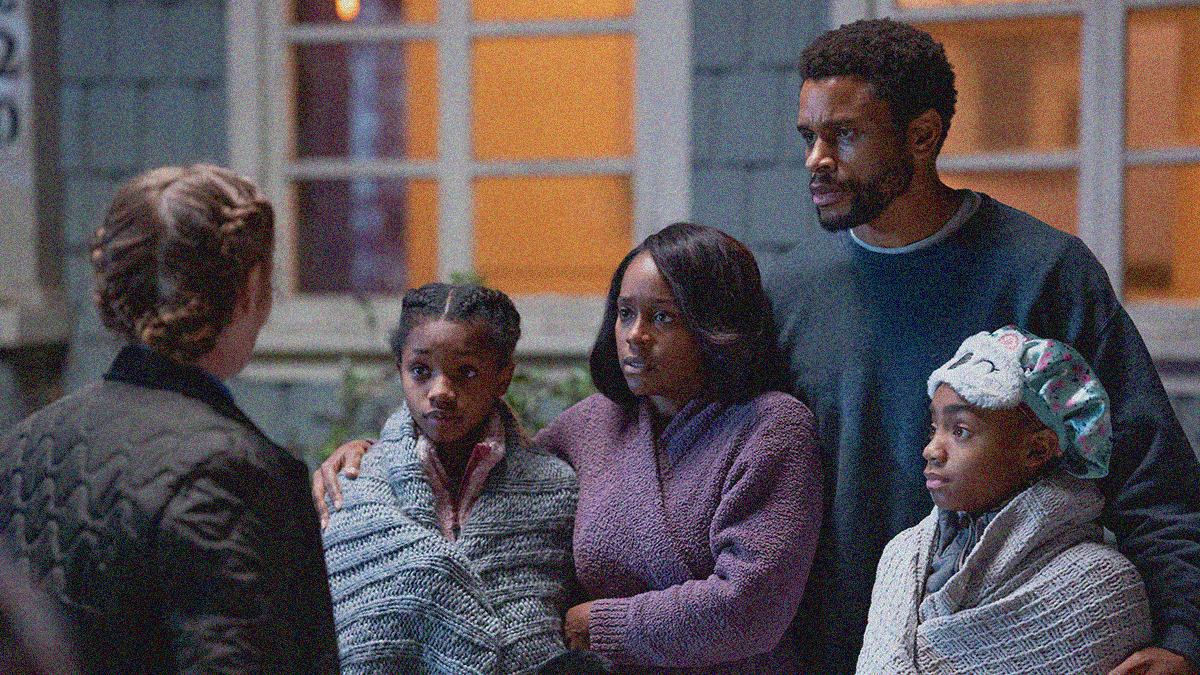
Fear is a funny thing. When confronting a bad situation, the impulse is to try and make things look better. Why? Because the truth is funny too. Depending on the circumstances, what actually happened can often seem less likely than what probably happened. And if the evidence points to the latter, the former becomes moot. So, now you must consider whether that fear is helping or hurting since its emotional toll also possesses the potential to cloud judgment. What if an impulsive act meant to direct attention towards the truth unwittingly negates it instead. If you can't trust the smoking gun, how can you trust anything?
Everything within director Nnamdi Asomugha and co-writer Mark Duplass's script is intentional. Race. The neighborhood's reputation. The time of night. The form of pain relief. The Knife of the title is conversely a distraction. It's the catalyst forcing Detective Carlsen (Melissa Leo) and Officer Padilla (Manny Jacinto) to question what Chris (Asomugha) and Alex (Aja Naomi King) are saying and subsequently hypothesize how all those other pieces fit their puzzle. Because the moment that knife's credibility gets destroyed is the moment it stops being a bolster for the truth and starts becoming proof that the truth is actually a lie.
Don't therefore dismiss anything that occurs. For example: it's easy to brush aside Carlsen's comment to Alex about never being able to afford a house like this at her age as an icebreaker. We've been told the property is cheaper than their old apartment's rent because the neighborhood is a bit sketchy, so we know Carlsen probably could have afforded it if made aware of those details. Does it matter? No. It's just small talk to create a rapport and cut through the obvious power imbalance. Unless ... it's not a joke at all. Maybe it's Carlsen talking through her prejudicial thought process to figure out how they can afford it.
The Knife surely rewards repeat viewings as a result because we are purposefully putting all our attention upon that weapon. Why Alex did what she did with it. Whether Chris's recollection of leaving it on the kitchen counter when attempting to confront the intruder in his home (Lucinda Jenney) will set off a lightbulb as far as explaining how it got in her hand. How one of their children (Amari Alexis Price's Kendra and Aiden Gabrielle Price's Ryler) will surely let slip what they saw right before the police arrived. They're all so desperate to corroborate one lie that they don't see how it recontextualizes everything.
I'll admit I didn't see it either. You become so invested in the obvious dramatic through line that you see the rest as a byproduct of it. All that tension? It's just because of the knife. Separating everyone for individual interrogations? It's to get to the bottom of the lie we witnessed being committed. The sheer fact we know something is amiss with the family intrinsically allows us to presume we can trust the other side of the equation is solely focused on discovering it too. So, we forget why Alex was so afraid in the first place. Because it's not about one lie. It's about how that one lie can be used to confirm other unethically sourced suspicions.
So, don't leave your seat when the film cuts to black. The real "a-ha" moment doesn't arrive until the credits present a dispatcher's voice. That's when we remember the violence of a cop's smile is sometimes as hateful as the violence of their drawn gun. Because the initial consequences of this night make sense. Maybe they're unjustly harsh considering the context we're provided, but you cannot deny more than one crime was committed. But the choice to move that knife isn't the only faulty leap of logic that occurs either. And the ones we don't consider until that dispatcher speaks are a whole lot more destructive.
It's why this story is told from the family's perspective. It's not about Carlsen figuring out the truth. It's about Chris and Alex letting fear drive their actions to a point where they create the circumstantial evidence needed to disprove the truth. There's no more damning look into the dangers America's systemic racism than a scenario where the victims of that cruelty are so aware of it that their attempts to survive seal a worse fate. It allows Leo's earnestly honest cop to unwittingly become a predator by doing her job and Asomugha and King to become criminals by trying to prove their innocence. The game is rigged.
7/10
KPop Demon Hunters
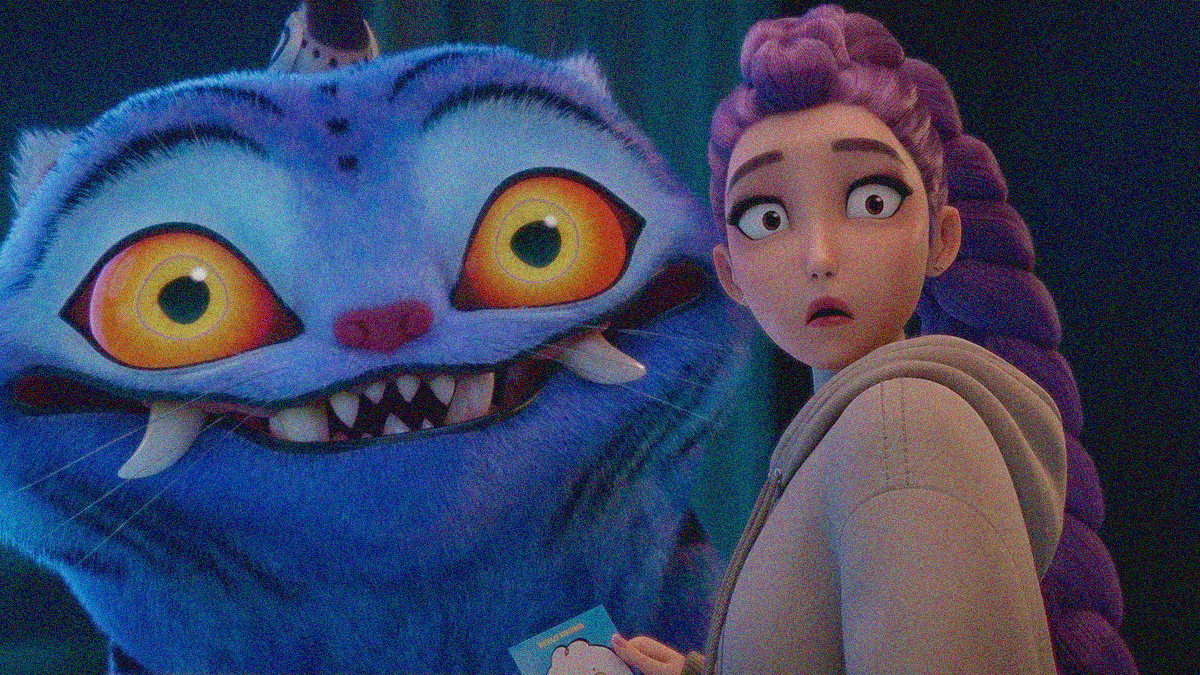
Humanity’s last line of defense are the voices of three Korean heroes singing to inspire our souls into creating an impenetrable shield against demons throughout history. Each trio is therefore tasked to train their next generation’s successors to excel at both entertaining the masses and vanquishing evil. Today’s iteration is Huntr/x, the world’s most popular K-pop act. And they’ve almost turned the magical Honmoon barrier gold to seal Gwi-Ma's demon ruler away permanently.
Utilizing mythology from her Korean heritage, Maggie Kang (who co-directs with Chris Appelhans and co-writes with Appelhans, Danya Jimenez, and Hannah McMechan from her original story) sets up KPop Demon Hunters as the culmination of a fight between good and evil that has become so routine over the millennia that Gwi-Ma is unable to alter his tactics and thus unwittingly embracing his own demise. Until a new champion rises with the perfect plan: create a rival K-pop boy band to steal Huntr/x's fandom and dismantle the Honmoon.
Part battle of the bands and part back-against-the-wall moment of recognition for both sides’ lead singers (Arden Cho’s Rumi and Anh Hyo-seop’s Joni) to realize the destructive forces haunting them are of their own making, you get a bit of a greatest hits of light vs. dark genre tropes beneath a very contemporary skin of fandom’s own penchant for hijacking pure adoration with hate-fueled rivalry. If we could see beneath the differences we’ve been socially conditioned to fear, maybe we’d finally understand we’re actually all the same.
The music is catchy enough, the Korean cultural fan-centric touchstones are extremely cute, and the message is powerful regardless of its familiarity. I loved the chaotic quirk of the minhwa “Derpy Tiger” and magpie combo as well as the action choreography too. I must question the use of the Spider-Verse animation style, though. The dropped frame aesthetic is cool with all the comic book filtering that franchise wields, but it feels weird when the graphics are this polished. I guess it’s simply Sony’s default engine now? Still looks great overall. Just also made me wonder if my internet was failing.
7/10
My Undesirable Friends: Part I - Last Air in Moscow
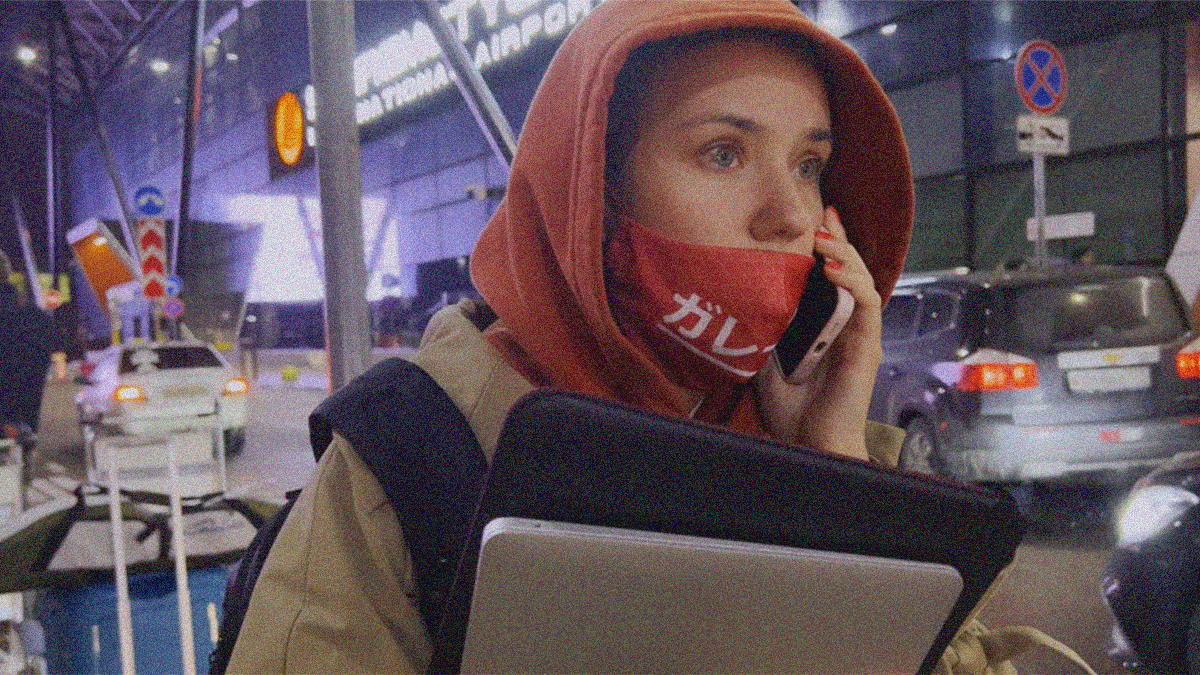
At one point during My Undesirable Friends: Part I - Last Air in Moscow, lead subject Anya Nemzer speaks about the feeling of insanity that the cognitive dissonance of the moment has created. The topic comes up multiple times throughout the film with journalists trying to wrap their head around the fact everyone else seems to be going about their lives like nothing is amiss and I couldn't help but think how that's what it's like here in America too—especially since the COVID pandemic was declared "over" as a result of corporate interests trumping public safety.
So, when Julia Loktev—the film's Soviet-born, American citizen director—seeks to remind her friend that it's not just happening in Russia, I nodded my head in agreement. Because her words weren't meant to belittle Anya's struggle. They came from a place of comprehension and solidarity. But you cannot deny the power of the TV Rain anchor's half-joking response comparing Julia to Vladimir Putin. "Okay, Putin." Tell us all how America is worse so we can accept what's happening to us. It's the exact sort of deflection political leaders use globally to pretend everything is fine. "We're not as bad as them." "They aren't doing it, so why should we?" "They cheated first."
Deflect. Deflect. Deflect. It's propaganda at its finest and its impact is nearly impossible to combat in a country as big as Russia with so many citizens left in the dark. Think about the red states in America—the "land doesn't vote" folk that democrats still think that catchy phrase will enlighten. They're governed by conservatives bolstered by local stations owned as Fox News affiliates disseminating conservative talking points to cement control. Multiply them exponentially while also minimizing the means to procure alternative news sources and it's no wonder some Russians believe the US installed a puppet government in the Ukraine that Putin must destroy to liberate its people.
It's why stations like TV Rain and journalists like Anya are so crucial to try and stem the tide. We know it too because Putin began declaring institutions like it and public figures like her as "foreign agents." Here you have the perfect catch-all as far as declaring all information they report as lies fed to them by American and European interests. It's identical to Donald Trump and the MAGA movement equating legacy media with "fake news" and the easily proven truth with a "liberal agenda." Where the difference lies (at least for now) is that republicans remain confident their slander is enough. Putin stopped taking that chance.
As learned throughout the first chapter of Loktev's massive five-plus-hours-long documentary (truly built as a miniseries complete with mini credits after each episode, but you do what you must when no one will distribute), the label "foreign agent" is initially meant as a bureaucratically dense deterrent. You want to report the truth? Okay, but you better remember to declare yourself a "foreign agent" and attach a lengthy preamble of text defining what that means every time you broadcast on television, stream online, or post on social media. Fail to do so and you'll be fined an arbitrary amount of money to always fear whether the next slip will bankrupt you. Fail again and you risk jail.
So, what does TV Rain and its cadre do? Turn it into a badge of honor. They make "special agent" t-shirts and do a James Bond photoshoot to morph the threat into a joke. They double-down on their coverage to ensure viewers know the words "foreign agent" doesn't make them enemies of the state, but facilitators of truth. Anya, Sonya Groysman, Olya Churakova, Ira Dolinina, Alesya Marokhovskaya, Ksyusha Mironovam, and Lena Kostyuchenko—amongst others—start to work together across different outlets to ensure Putin's propaganda isn't given freer rein than it already has. They do what they can to keep the promise of a democratic Russia alive even as it rapidly erodes before their eyes.
Loktev's intent was to show their tenacity against the regime. To highlight these heroes who often thanklessly hold the government accountable regardless of that accountability meaning more outside their own borders than within. How could she know what was about to happen a few months later? That the "foreign agent" lists weren't just an FSB scare tactic but an intentional first step towards weaponizing the international community and silencing the truth en route to escalating their eight-year war with Ukraine into a full-scale invasion. Not even the Russian soldiers training at the border could since, as they admit to Ira, she probably knew more about what's happening than them.
Suddenly this project takes on a whole new context. As the danger escalates for Ukraine, it amplifies for these independent journalists too. Should they appeal the label? Should they preemptively apply for visas? Should they leave now? Each has their own unique circumstances (Anya has a family, Ksyusha's journalist fiancé is in prison on a vague treason charge, Alesya would need to leave her non-journalist girlfriend behind, etc.) and you can't judge any of them for the choices they ultimately make. Yes, being on the ground provides first-hand access, but staying free and alive abroad provides the ability to report. Russia is a very different beast than America. Our laws are also starting to no longer apply, but pressure remains an effective tool for justice. If you're silenced in Russia, that's it.
You cannot therefore underestimate how crucial a work My Undesirable Friends: Part I - Last Air in Moscow proves (Part II is advertised as being a document of the same women continuing their work in exile). The entire Putin playbook is laid out with full transparency simply by having all these journalists compare notes insofar as how their ability to do their jobs change with every passing day. How did they arrest you? What did they look for and confiscate? Was your trial rigged? Could they have bankrupted you but didn't? They are feeling the government out as to where the boundary lines are just as the government is feeling out how much fascism the populace will accept without pushing back.
And then comes the invasion in chapters four and five. Putin's playbook accelerates into full-scale isolationism by pulling out of the European Council and forcing international governments and businesses to pull out of Russia so he can confirm to his people they are the real enemy. Hypothesizing about leaving the country becomes bona fide planning now as Anya and the others realize a raid could occur at any moment simply because they dare to call Putin's "special military operation" a war. Now we see the creative ways in which the opposition can stay vocal while not fully complying and the unimaginative ways brute force can be wielded to render it ineffective anyway.
That's why I consider the quote "We must create a record." to be the big takeaway. These women aren't doing this for the money (I laughed when Ksyusha joked "Where's all this foreign money we're supposedly being paid?") or the celebrity. The only "perk" their courage gains them is an FSB tail. It's not about changing things either since Putin's government is solidly entrenched with far too many in lockstep with his manufactured world view. They risk their freedom to do the work solely because the truth must be recorded somewhere. The hypocrisy and lunacy must make its way out of Russia so it can hopefully make its way back and reach new ears ready to finally listen.
So, it's important Loktev doesn't distill it down to a two-hour lecture. It's only this effective if we see into these women's lives beyond the work. Humanizing them earns our investment and empathy. It ensures they aren't just cogs in a machine being worn down and thrown away. These are the true voices of Russia. The true defenders and lovers of Russia. Whereas Putin fights and lies to maintain control, these journalists investigate his methods and expose the truth to empower the Russian people to dare to stand-up and take that control back. And while that mission might not bear fruit any time soon there, hopefully its existence can awaken other countries better prepared to understand today.
9/10
Suspended Time
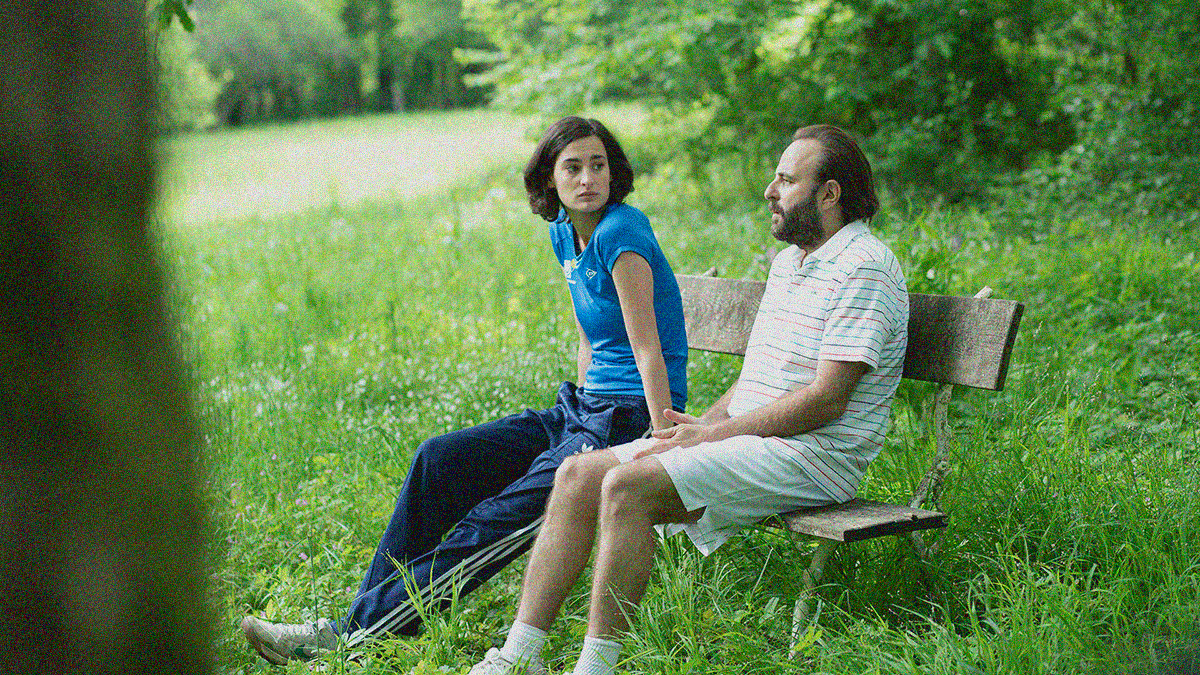
The time is Spring 2020 and the COVID lockdown is in full effect. With the luxury of owning property that's still somewhat off the beaten path (although civilization did eventually consume the region in the years since their childhood), brothers Paul (Vincent Macaigne) and Etienne Berger (Micha Lescot) decide to quarantine together away from city congestion. The former is a filmmaker who's enjoying this pause despite his germophobic anxieties ratcheting up with each new protocol. The latter is ready to tear off his skin as the whole situation "steals" his freedom. It's a reunion of sorts in a place of nostalgia that both reminds them of their shared history as well as their current singular lives.
I find it funny that Suspended Time writer/director Olivier Assayas gave his characters fictional names considering they are very obviously him and his brother Michka. Not only are their occupations the same and the location literally their family home, but Paul mentions wanting to do a new project with Kristen Stewart and, via voiceover narration, mentions his film Irma Vep. The distance—no matter how small—surely helped get his thoughts about the period down while ensuring he could remain as vulnerable as possible, but it still makes me laugh. Maybe he wouldn't have allowed his stand-in to be quite so neurotic (with good reason, mind you) if he also had his name.
The film is very much a time capsule of uncertainty at a moment when nobody knew what would occur in the aftermath. We hear Paul talk to contemporaries about the industry and how it will need to change to confront its threat of exposure. We watch as he compulsively buys new products on Amazon while Etienne rails against him for supporting a war profiteer while small businesses go bankrupt. We relate to his desire to get his brother on the same page as far as masking and leaving foreign products outside for four hours before bringing them in while understanding Etienne's frustration towards this overzealous caution (or the opposite depending on which side you align). Tensions mount.
It's why the women prove a crucial source of mitigation. It's the first extended time either man has spent with his significant other since they began dating. Paul and Morgane (Nine d'Urso) have been together two years, but always separated by work. Etienne and Carole (Nora Hamzawi) have been together a few months, but always in secret as he traversed his divorce. So, there's a level of pleasantry and self-censorship permeating the household. Neither brother wants to cause a scene in front of the newcomers, but some of the conversations prove they would love to do so (the heightened sarcasm of an exchange about television volume is my favorite). It's a shared space of individual compromises with as much familial overlap as possible during meals.
And that's pretty much it. Add the strain of quarantining away from their children (Paul, Etienne, and Carole all have kids) and the pressure of balancing the new world order against the old (Paul more or less steering clear of communal work to focus on writing while Etienne seeks to stay connected by continuing his radio show remotely), and it's a relatable scenario once you strip away the obvious comfort and convenience of being financially secure enough to survive a lockdown of this magnitude. It's about Paul figuring out who he is amidst the chaos and fear by diving back inside the memories of living in this home as a boy and all the influences that it provided his work and identity as an adult.
Assayas says himself that he wrote the script less as a movie and more as a journal to get his experiences on paper. So, the finished piece is also less of a plot-specific narrative than a personal essay filtered visually through fiction. Its true beauty and purpose are therefore bound to little moments and dialogue amidst the name dropping (Assayas was so inspired by David Hockney's artistic output during COVID that Morgane jokingly tells Paul to start speaking for himself rather than always beginning conversations with "Hockney says ..."). Morgane's words about Paul and Etienne growing up in the same world to pursue similar occupations yet becoming total opposites in the translation linger most.
Appreciation will surely vary since it's the type of project that gives viewers only as much as they're willing to put into the experience. Considering my partner and I still mask in public spaces five years later proves Paul's meditations about the future resonated with me. Those more aligned with Etienne might see it all as more of a comedy than it is with Paul serving as their whipping boy. Or, perhaps, you'll just dismiss it as an artist's solipsistic need to create by putting his thoughts into the public sphere regardless of any demand for them. Hopefully you aren't the latter, though, since Assayas has made a career delivering thoughtful semi-autobiographical cinema. Those who aren't willing to give Suspended Time a chance should know not to watch it at all.
7/10
Went Up the Hill
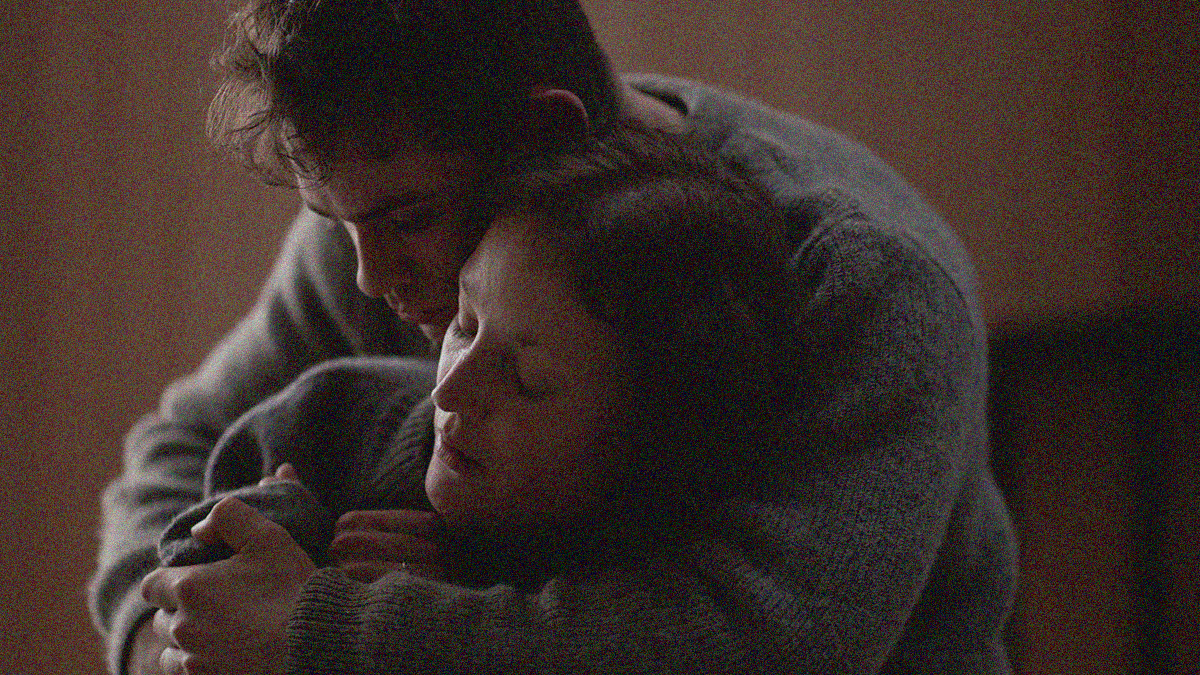
A troubled woman dies, leaving behind an estranged wife and estranged son who never knew the other existed until now. It's why Helen (Sarah Peirse) is the only person who seems as if she's seen a ghost when Jack (Dacre Montgomery) shows up to Jill's (Vicky Krieps) house for the funeral. How did he know to come? Because Jill called. How did she know to call him? Because it wasn't her on the phone. No, Elizabeth's spirit is still somehow holding on and inhabiting her wife's body to orchestrate this reunion with a sinister goal in mind.
Yes, Samuel Van Grinsven's Went Up the Hill is led by two characters named Jack and Jill. But they aren't fetching a pail of water. What they are doing, however, is falling down. A lot. Elizabeth can only enter their bodies when they are asleep, transferring between them with ease and leading both to hit the ground before one rises as themself and the other as her. And they do this willingly. Jill to be with the woman she loves and Jack to put a "face" to the memories of love that still linger in his heart.
Is it a healthy nighttime activity? Definitely not. For one, Van Grinsven and Jory Anast's script does go where you presume it might as far as the subject of consent is concerned. But there's also the psychological ramifications of holding onto this impossible dynamic instead of accepting the anguish of grief. It's the latter that ultimately exacerbates things because their need to give themselves to Elizabeth rapidly cedes control of the situation to her entirely. Even the thought of shutting things down forces her to do whatever's necessary to remain in reality.
Went Up the Hill is thus born from later versions of the nursery rhyme, specifically those that contain the line "Mother, vex’d, did whip her next." That last word is crucial because it reveals, without overtly stating as much, that "he" was whipped first. So, when the love angle wanes, Elizabeth resorts to less savory methods of coercion. It could be abusing Jill while in Jack's body. Or maybe abusing them both via self-harm while the other is forced to watch. There is no line too far to cross. Not when she's the one who truly refuses to be left alone.
That selfishness if the driving force behind everything. It's what led Jack to be raised by strangers. It's why Jill was pushed away despite her devotion. It's why this threesome was arranged from beyond the grave to hopefully (in Elizabeth's mind) facilitate an end game that would provide her—and solely her—exactly what she desires regardless of the collateral damage. I really don't like calling it "selfishness" considering the facts yet to be revealed, though. Elizabeth is obviously afflicted by mental illness and the script refuses to engage with it beyond the horror of her actions while caught in its throes.
It's therefore a tough work to fully embrace when everything it does so well in giving Jack and Jill the room to introspectively acknowledge their trauma sort of comes undone by its rejection of allowing Elizabeth to be anything but a monster. That's fine if this were demonic possession. Had Van Grinsven and Anast thrown something in where "Elizabeth" reveals herself to be Satan using her name to collect souls for Hell, I'd be much higher on the overall picture. But they don't. They conversely turn this broken soul into that demon. And, as a result, transfer some of the blame onto Jack and Jill for still loving her.
Am I thinking too hard? Probably. One could argue their love for her despite her violence is all we need. Let Elizabeth be a monster because Jack and Jill's presence reveals her humanity without demanding concrete evidence. I get that. This is a story about the survivors, not the predator. I guess it's just that their process of inherently reducing mental illness into evil sticks out when there are many other ways to inject nuance into the equation to prove this isn't the case. Because the film is well made and does treat the experiences of those victims authentically.
Sometimes a villain is just a villain. It's why Helen is included as a figure to perhaps be wrongly vilified like Elizabeth is perhaps wrongly given the benefit of the doubt. How that angle pans out isn't tough to predict, but its emotional weight lingers nonetheless. Credit Krieps and Montgomery for embodying the vulnerability, fear, and yearning that propels these characters to allow themselves to be used as vessels for the other's healing. They're both performing three-in-one roles: lost, Elizabeth, and found. Initially subdued by their own pain, learning how that torment originates from a shared source jolts them awake.
6/10

This week saw 1408 (2007), Bob Trevino Likes It (2025), Lone Wolf McQuade (1983), Poltergeist III (1988), and Starsky & Hutch (2004) added to the archive (cinematicfbombs.com).
Samuel L. Jackson leans in for an f-bomb in 1408.

Opening Buffalo-area theaters 8/15/25 -
• Americana at Regal Transit, Galleria, Quaker
• Coolie at Regal Elmwood, Transit
• East of Wall at Regal Transit, Galleria, Quaker
Thoughts are above.
• Eli Roth Presents: Jimmy and Stiggs at Regal Transit, Galleria
• Highest 2 Lowest at Dipson Amherst, Capitol
• The Hidden Fortress 4K at North Park Theatre (select times)
• The Last Class at North Park Theatre (select times)
• Nobody 2 at Dipson Flix, Capitol; AMC Maple Ridge, Market Arcade; Regal Elmwood, Transit, Galleria, Quaker
• Shin Godzilla 4K at North Park Theatre (select times); Regal Elmwood, Transit, Galleria, Quaker
• War 2 at Regal Elmwood, Transit, Galleria
• Went Up the Hill at Regal Quaker
Thoughts are above.
• Witchboard at Regal Galleria, Quaker
Streaming from 8/15/25 -
• It Feeds (Hulu) - 8/15
• Night Always Comes (Netflix) - 8/15
• The Legend of Ochi (HBO Max) - 8/15
• The Siege at Thorn High (Prime) - 8/15
• The Box Man (Fandor) - 8/19
• The Map That Leads to You (Prime) - 8/20
• The Unbreakable Boy (Starz) - 8/20
Now on VOD/Digital HD -
• Die'ced: Reloaded (8/12)
• Eddington (8/12)
• Marlee Matlin: Not Alone Anymore (8/12)
• Mr. Blake at Your Service! (8/12)
• Smurfs (8/12)
• Star People (8/12)
• Day of a Lion (8/15)
• Descendent (8/15)
• The Final Run (8/15)
• Red Sonja (8/15)
• A Spartan Dream (8/15)
• Superman (8/15)
• Under Fire (8/15)

Pieces from the Event Horizon (1997) press kit.
